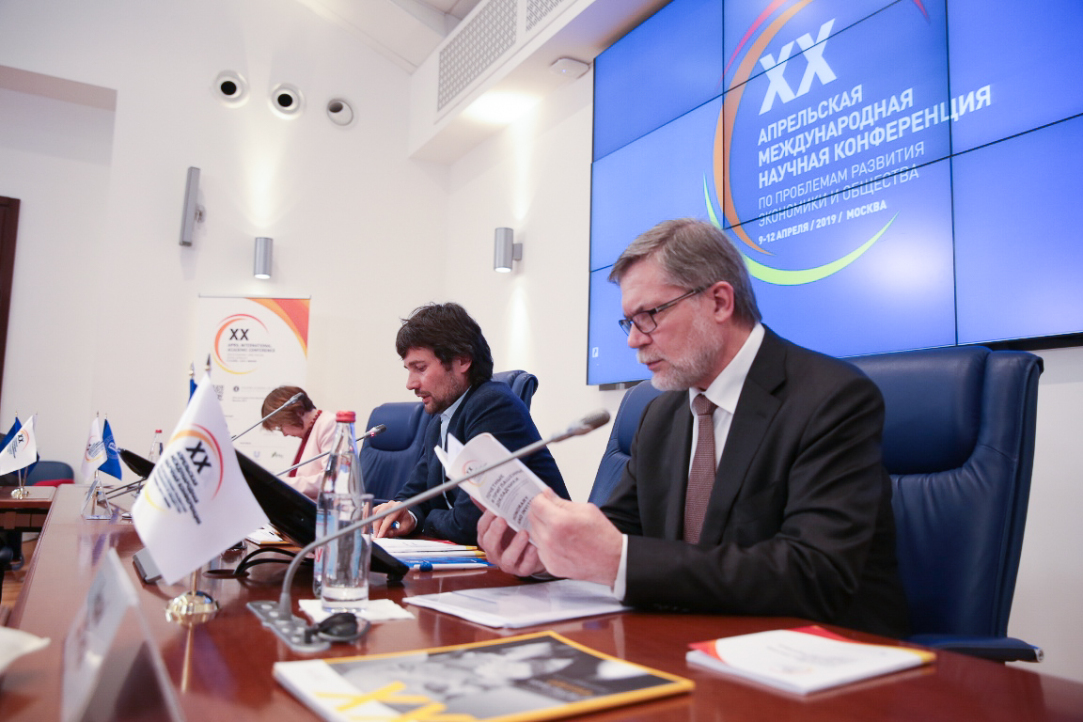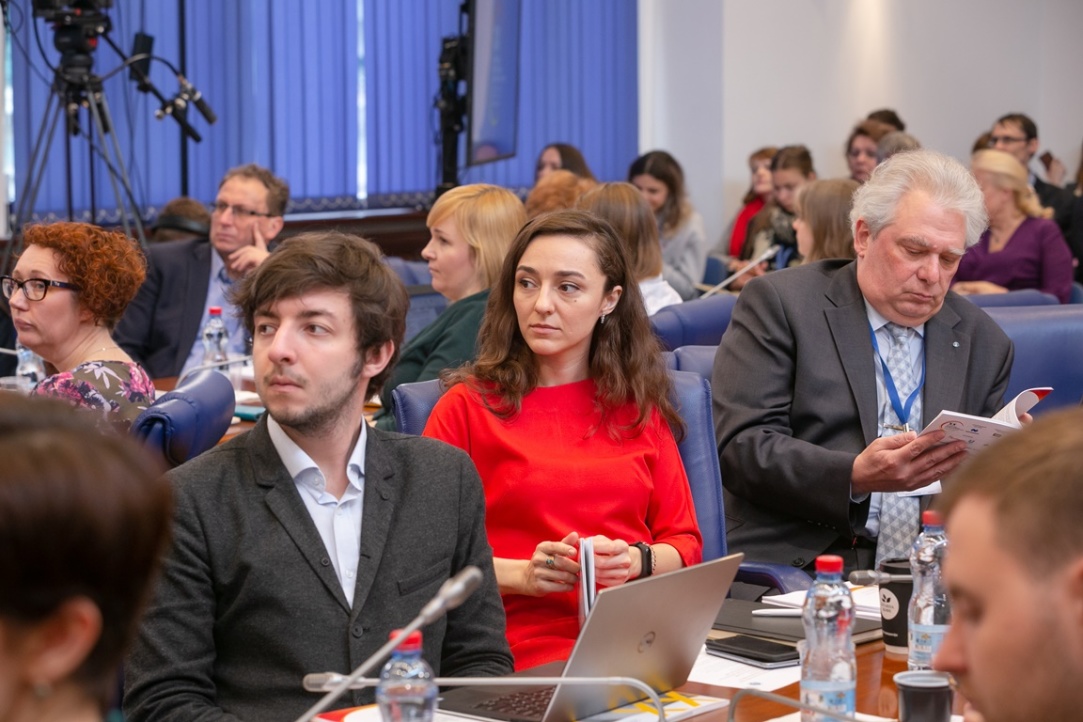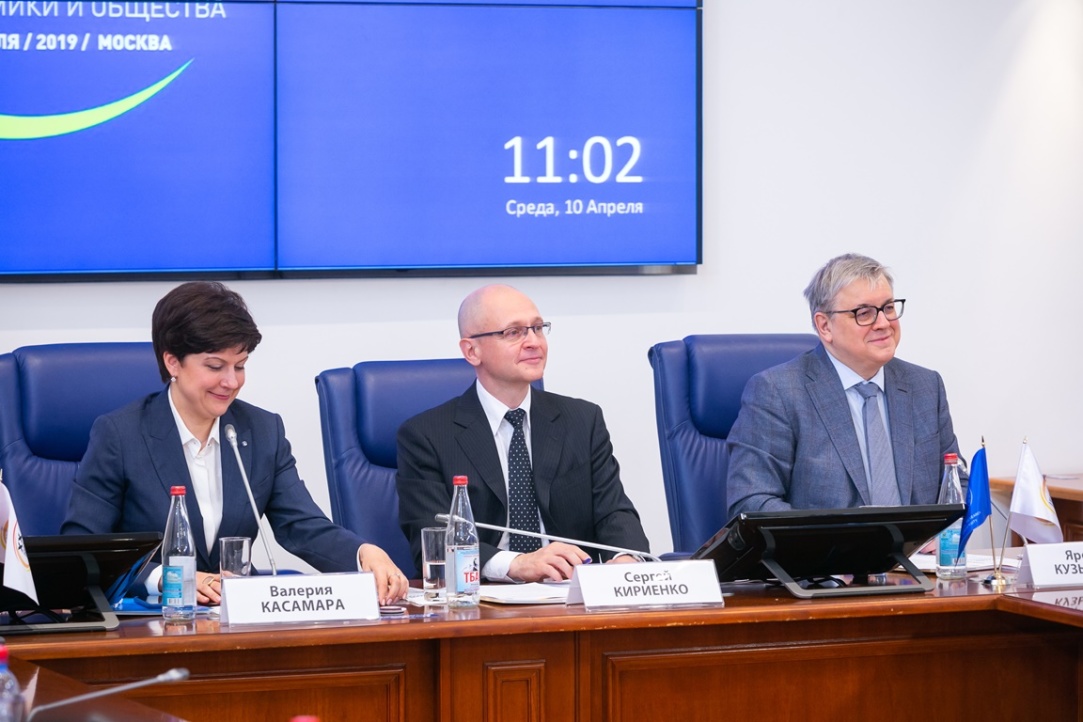.jpg)
Art for Auction: The Shape of the Russian Art Market
Currently, the Russian art market is made up of more than 20 auction houses, about 100 major galleries, 9 big private collectors, and over 20 thousand professional artists. Though it shows a lot of promise, it still has yet to come into its own. Researchers of the HSE Centre of Development Institute studied the contemporary mechanisms in place for trading paintings, graphic art, photography and sculpture in Russia, and they published their findings in a paper, ‘The Russian Art Market: 2018’.

How to Boost Russian Food Exports
The plenary session ‘Strategy of Russian Presence at Global Food Markets’ took place as part of HSE University’s XX April International Academic Conference, where participants discussed the prospects for Russian agricultural exports to Asia, as well as the use of nonconventional investment models, such as Islamic financial tools.
‘The President is Focused on Increasing the Birth Rate and Reducing Poverty by Half’
National objectives for social development, as well as existing risks and opportunities in implementing these objectives were discussed by participants of HSE International April Conference.

‘Isolationism Is the Pathway to Technological Degradation’
The XX April International Academic Conference continued on April 11 with a discussion on digitalization of the economy and public administration. Maxim Akimov, Deputy Prime Minister of Russia and Curator of the Digital Economy National Programme, spoke about digital business models, public administration, digitalization in industry and science, and the impact of digital technology on the job market.

New Personnel Selection System Now Active across the Country
The social mobility system created under President Vladimir Putin’s initiative begins with a search for talented children and ends with training and selection of the best top executives. On April 10, the participants of a plenary session on ‘The New System of Social Mobility in Russia as a Way to Renew the Elite’ at theXX April International Academic Conference discussed the details of this system, as well as its future outlook.
Studying Foreign Policy Discourse
The HSE Look continues a series of interviews with international postdocs about their research. For the latest issue we’ve talked with Iain Ferguson, Research Fellow at the International Laboratory on World Order Studies and the New Regionalism, Faculty of World Economy and International Affairs, about his work and exploration of Moscow and other cities.
‘Economic Innovation Is Impossible without the Right to Fail’
The first plenary session of the HSE XX April International Academic Conference continued with a discussion on the sources of economic growth, budgetary policy priorities, as well as investment in infrastructure and human capital. Experts from HSE joined other participants to speak on these issues.

The Anxiety of Exposure: Why We Suffer from Imposter Syndrome
Researchers from the HSE Perm, in collaboration with an American colleague, confirmed the theory that impostor syndrome fully mediates the link between perfectionism and psychological distress
‘We Need Solutions That Will Allow Russian Business not to Look to Offshore Companies, but to Gain Profitability in Russia’
HSE’s XX April International Conference opened with a plenary session devoted to Russian economic development and fiscal policy. Mr. Anton Siluanov, Russia’s First Deputy Prime Minister and Minister of Finance, discussed the solutions proposed by the Russian government to stimulate economic growth and business development.
‘A Week of Academic and Intellectual Pleasure’: HSE Hosts April Conference for the Twentieth Time
On April 9, the XX April International Academic Conference on Economic and Social Development kicked off at HSE University. Since its inception, it has become Russia’s biggest academic and expert platform in the social sciences and economics, as well as an important international event that attracts researchers from all over the globe each year. Fuad Aleskerov and Andrey Yakovlev, members of the Conference Programme Committee, spoke with the HSE News Service about the results achieved over the past 20 years, relevant topics, and plans for the future.

